Understanding Property Taxes for Landlords in Jupiter, FL: A Comprehensive Guide
Property taxes are an essential aspect of property ownership, especially for landlords in Jupiter, FL. Understanding how property taxes work and how they impact your investment is crucial for making informed decisions and optimizing your returns. In this guide, we’ll dive into the specifics of property taxes for landlords in Jupiter, offering detailed insights, practical advice, and actionable tips to help you navigate the complex tax landscape.
What Are Property Taxes?
Property taxes are levies imposed by local government authorities on the ownership of real property. These taxes are used to fund various public services, including schools, infrastructure, emergency services, and more. As a landlord in Jupiter, FL, it is essential to understand how property taxes are calculated, how they affect your bottom line, and how you can manage them effectively.
The Basics of Property Tax Calculations
In Jupiter, property taxes are assessed by the Palm Beach County Property Appraiser’s Office. The amount you pay is based on the assessed value of your property and the local tax rate, also known as the millage rate. The formula for calculating property taxes is straightforward:
Property Tax = Assessed Value x Millage Rate
- Assessed Value: This is the value determined by the county’s appraiser for the property. It is usually updated annually.
- Millage Rate: The tax rate set by local authorities. One mill represents $1 of tax for every $1,000 of assessed value.
The tax rate varies depending on the location and the type of property, so it’s essential to understand how your specific property is classified and taxed.
How Property Taxes Impact Landlords in Jupiter, FL
As a landlord, property taxes represent a significant operating cost that directly affects your investment’s profitability. While property taxes are an unavoidable expense, there are several ways to manage their impact and ensure that you are paying only what you owe.
Property Taxes and Rental Income
Your rental income is not directly affected by property taxes, but your net income certainly will be. Higher property taxes can reduce your overall profitability, so it’s important to factor these taxes into your rental pricing and budget. In some cases, you may be able to pass some of the property tax burden onto your tenants, depending on the terms of your lease agreement.
For example, landlords often include property tax increases in rent adjustments or base rents that account for potential changes in local tax rates. It’s important to consider how your rental property’s tax burden might evolve over time when setting rental rates.
Property Tax Appeals for Landlords
In some cases, property owners may believe that their property has been overvalued, resulting in higher property taxes than they should be paying. If this is the case, landlords in Jupiter can file an appeal with the Palm Beach County Value Adjustment Board. The appeal process allows you to challenge the county’s assessment of your property’s value, potentially reducing your tax burden.
To file an appeal, you’ll need to provide evidence that supports your claim, such as a recent independent appraisal of your property or data showing that similar properties are assessed at lower values. It’s a good practice to consult with a property tax expert or real estate attorney before pursuing this route to ensure the process is handled effectively.
Local Jupiter Tax Rates
While the county sets the base tax rates, Jupiter has its own local taxes that impact landlords as well. These can include taxes for public services, schools, or specific local infrastructure projects. It’s important to understand the specific tax rates for your property’s location within Jupiter. These rates can vary significantly, affecting your overall tax liability.
In addition to the county and municipal tax rates, landlords in Jupiter may be subject to special assessments for services like road maintenance, drainage, and neighborhood beautification efforts. Special assessments are typically levied as a flat fee or based on property size, so be sure to inquire about any additional taxes or fees that may apply to your property.
How to Calculate Property Taxes for Your Rental Property
Understanding how property taxes are calculated is essential for managing your rental property’s expenses. Here’s how you can calculate your property tax:
Determine the Assessed Value of Your Property: The Palm Beach County Property Appraiser’s Office will assign an assessed value to your property. You can find this information online or by contacting the office directly. This value is based on factors such as the size, condition, and location of your property.
Understand the Local Millage Rate: The millage rate for Jupiter and Palm Beach County will be provided by local authorities. You can find the millage rate for your specific location online or by contacting the county. This rate will determine how much you owe for every $1,000 of assessed property value.
Calculate Your Property Tax: Multiply your property’s assessed value by the millage rate to calculate the amount of property tax you owe. For example, if your property is valued at $300,000 and the millage rate is 20 mills, the property tax would be:
$300,000 ÷ 1,000 x 20 = $6,000
This calculation gives you a rough estimate of your annual property tax liability.
Tips for Managing Property Taxes
While property taxes are an unavoidable expense, there are strategies you can implement to manage and reduce their impact on your bottom line.
1. Regularly Review Your Property’s Assessed Value
It’s essential to stay on top of your property’s assessed value, as it can change over time. The county reassesses properties annually, and if the market value of your property decreases or if your property is inaccurately assessed, you could end up paying more than necessary. By monitoring property values in your area, you can identify any discrepancies and take action.
2. Utilize Tax Deductions
As a landlord, you may be eligible for various tax deductions related to property taxes. While property taxes themselves are a business expense that you can deduct from your taxable income, you may also be able to deduct other costs associated with property ownership, such as repairs, maintenance, insurance, and mortgage interest. By maximizing these deductions, you can offset some of the impact of property taxes.
3. Plan for Future Tax Increases
Property taxes are subject to change, especially in growing areas like Jupiter, where infrastructure and local services may expand. It’s a good idea to include potential tax increases in your long-term budgeting and financial planning. By setting aside funds for future tax hikes, you’ll be better prepared when your tax bill increases unexpectedly.
4. Consult a Property Tax Professional
Property taxes can be complex, and managing them efficiently often requires expertise. Consulting with a property tax professional or accountant can help you identify tax-saving opportunities, ensure that you’re complying with local tax laws, and navigate any challenges related to property tax assessments and appeals.

Get a Free Rental Analysis
Want to know how much your home will rent for? We’ll send you a free rental report!
Maximizing Your Property Tax Strategy as a Landlord in Jupiter, FL
As a landlord in Jupiter, FL, managing your property tax strategy can be a vital part of protecting your investment and optimizing your profitability. In this section, we’ll explore additional tips and strategies that can help landlords reduce their property tax burden, make smarter financial decisions, and stay on top of their tax obligations. By understanding both the short-term and long-term implications of property taxes, you’ll be able to manage your real estate portfolio effectively.
Exploring Property Tax Exemptions for Landlords
While property taxes are generally unavoidable, Florida offers various exemptions that landlords may be eligible for. These exemptions can reduce the taxable value of your property, ultimately lowering your property tax bill.
Homestead Exemption
The homestead exemption in Florida allows property owners to reduce the taxable value of their primary residence. Although the homestead exemption does not apply to rental properties, landlords can still benefit from this exemption if they reside in the property they own. For those with rental properties, this exemption is useful only for the landlord’s own home.
If you own a rental property and live on the premises as your primary residence, the exemption could provide significant tax relief by lowering the assessed value of your home. To qualify, the home must be your permanent residence, and you must file for the exemption with the Palm Beach County Property Appraiser’s office.
Save Our Homes (SOH) Cap
In addition to the homestead exemption, Florida’s “Save Our Homes” (SOH) provision offers protection for homeowners by limiting how much the taxable value of their primary residence can increase each year. The SOH cap limits increases to 3% per year, regardless of market value fluctuations. This cap does not apply to rental properties, but it’s important to keep in mind for property owners who live on the premises.
If you’re a landlord who has converted your personal property into a rental, the SOH cap can protect your home’s taxable value from significant increases over time. It’s a valuable tool for homeowners who want to keep their taxes predictable, especially in markets like Jupiter, where property values may increase quickly.
Non-Homestead Property Tax Exemption
In some cases, properties may qualify for a non-homestead exemption. This exemption can apply to certain property types, including seasonal homes, agricultural properties, and properties that serve a special purpose, such as historic properties. However, non-homestead exemptions are not automatically applied and must be filed for with the county.
If your rental property qualifies for a non-homestead exemption, it can help lower your property taxes. Be sure to research eligibility requirements and consult with a tax professional to ensure you’re receiving all possible exemptions.
Property Tax Deductions for Rental Properties
As a landlord, you may be able to deduct certain property-related expenses from your taxable income, helping to offset the impact of property taxes. These deductions are important to understand because they allow you to reduce your overall taxable income, which can lower your tax burden.
Deducting Property Taxes
Landlords can deduct property taxes as a business expense on their income tax returns. This deduction allows you to deduct the full amount of property taxes you pay on your rental properties, helping to reduce your overall tax liability. The deduction is straightforward—simply include the amount of property taxes paid on your rental property when filing your tax return.
It’s important to note that property tax deductions only apply to rental properties, not to properties that are used as personal residences. If you own both a personal home and rental properties, you can only deduct property taxes for the rental properties.
Deducting Mortgage Interest
In addition to property taxes, you can deduct mortgage interest payments on your rental property loans. This deduction can be substantial, especially if you have a large mortgage. When calculating your property tax strategy, it’s wise to include both property tax and mortgage interest deductions in your financial planning. Mortgage interest deductions help reduce your taxable income, lowering the amount of taxes you owe.
Deducting Depreciation
Another significant tax benefit for landlords is the ability to deduct depreciation. Depreciation allows landlords to deduct the cost of property improvements and wear-and-tear over time. While property taxes are a one-time expense, depreciation helps landlords recover the cost of their rental property over a period of years. Typically, residential properties can be depreciated over 27.5 years, which can be a substantial deduction when preparing your tax returns.
Depreciation can offset rental income, lowering your tax liability, and the process is relatively simple to track. Be sure to keep accurate records of the property’s purchase price, any capital improvements, and depreciation claims over the years.
Managing Property Tax Increases in Jupiter
In some cases, Jupiter landlords may face rising property taxes due to increasing property values, new assessments, or changes in local tax rates. Here are several strategies to manage property tax increases and mitigate their impact on your investment:
1. Anticipate and Budget for Tax Increases
As the real estate market continues to grow in Jupiter, FL, property values may increase, leading to higher property taxes. It’s essential to anticipate potential tax increases and factor them into your long-term financial planning. By setting aside funds in advance, you can avoid financial strain when tax rates increase unexpectedly.
A good approach is to calculate the projected impact of property tax increases on your cash flow and overall return on investment (ROI). If you foresee higher taxes, you can adjust rental rates, reduce other operating costs, or reassess the profitability of the property. Having a cushion for tax increases allows you to maintain your cash flow without sacrificing the overall success of your rental property.
2. Regularly Review Your Property’s Tax Assessment
Your property’s assessment value plays a significant role in determining the amount of property tax you owe. If your property is overvalued, it could lead to an inflated tax bill. In Jupiter, you have the right to review and appeal your property’s assessment if you believe it’s inaccurate or unfair.
If you notice that the assessed value of your property has increased significantly from one year to the next, consider conducting a thorough review to ensure that the property is accurately valued. Check comparable property sales in the area to see if your property is assessed higher than similar homes. If you believe the assessment is unfair, you can file an appeal with the Palm Beach County Value Adjustment Board.
3. Explore Tax Saving Strategies for Renovations and Upgrades
If you’re planning on making significant improvements to your rental property, it’s important to understand how these upgrades can affect your property taxes. Major renovations, such as adding square footage, improving the roof, or enhancing landscaping, may increase the assessed value of your property. While these upgrades can increase your property’s value, they may also raise your property tax bill.
However, there are ways to mitigate the impact of renovations on your tax liability. Certain energy-efficient upgrades, such as installing solar panels or making your property more sustainable, may be eligible for tax credits or exemptions. Consult with a tax advisor before starting renovations to understand the potential tax implications and to ensure you’re taking advantage of any available incentives.

Long-Term Property Tax Planning for Landlords in Jupiter, FL
Effective long-term property tax planning is essential for maximizing profits and ensuring sustainable growth for landlords in Jupiter, FL. While managing your property tax liabilities on a yearly basis is crucial, a proactive approach to long-term planning will help you navigate future changes in tax laws, property values, and the rental market. In this section, we will explore several advanced strategies and best practices to help you optimize your property tax situation for the long haul.
Working with Property Tax Professionals
Navigating the complexities of property taxes can be challenging, especially when trying to optimize deductions, exemptions, and appeals. For landlords, working with a property tax professional can provide invaluable assistance and ensure that you’re taking full advantage of the tax laws available to you.
Why You Need a Property Tax Professional
A property tax professional can help you with a variety of tasks, from reviewing your property’s assessment to providing advice on possible deductions and exemptions. Property tax professionals often have experience working with local tax authorities and can offer strategic insights that could save you money. Additionally, they are well-versed in any changes to local tax regulations, which can be essential in keeping your tax strategy up to date.
For instance, if you’re concerned about a potential increase in property taxes due to a reassessment, a property tax expert can guide you through the appeals process. Their knowledge of comparable properties and market trends can strengthen your case for a lower assessment. Moreover, a property tax professional can help identify any overlooked exemptions or deductions that could lower your taxable income, such as historic preservation credits or green energy incentives.
Choosing the Right Professional
When selecting a property tax professional, ensure that they have experience working in the Jupiter area and with rental properties specifically. A tax expert familiar with Palm Beach County’s tax codes will be better equipped to help you optimize your tax strategy and navigate local regulations. Look for professionals who have a proven track record of success in reducing property taxes and those who can offer advice tailored to your specific real estate investment goals.
Utilizing 1031 Exchange for Tax Deferral
A powerful tool for landlords who are looking to reinvest in new properties while deferring property taxes is the 1031 exchange. This tax strategy allows property owners to defer paying capital gains taxes on the sale of a property by reinvesting the proceeds into another like-kind property.
What Is a 1031 Exchange?
A 1031 exchange enables landlords to sell a property and purchase a new one without triggering immediate tax liabilities. Instead of paying taxes on capital gains, which could be substantial if the property has appreciated significantly in value, the taxes are deferred until the new property is sold. The key requirement is that the property being sold and the property being purchased must be of a similar nature or use.
For Jupiter landlords, this strategy is especially relevant in a market where property values are rising. By utilizing a 1031 exchange, landlords can grow their portfolio while avoiding immediate tax consequences, which allows them to maximize their return on investment. This strategy is a great way to build long-term wealth by deferring taxes and reinvesting the gains into more lucrative properties.
Benefits and Risks of a 1031 Exchange
One of the key benefits of a 1031 exchange is the ability to defer taxes, which can improve cash flow and allow you to reinvest more of your proceeds into new properties. However, the process requires strict adherence to IRS guidelines, and it’s important to work with a qualified intermediary to ensure that the exchange is completed correctly.
It’s important to note that a 1031 exchange does not eliminate taxes—it simply defers them. Eventually, when the new property is sold, taxes will need to be paid. However, by using a 1031 exchange, landlords can time their property sales to minimize tax impacts and reinvest into properties that offer higher returns.
Keeping Track of Property Tax Changes
As a landlord in Jupiter, staying informed about changes in property tax laws and local regulations is essential for optimizing your tax strategy. Local governments periodically adjust property tax rates and policies, which can have a direct impact on your finances.
Stay Up to Date with Local Tax Laws
Changes in local tax laws can significantly impact your property taxes. For example, Jupiter’s property tax rates may fluctuate based on the county’s budgetary needs or changes in local ordinances. By staying informed and engaged with local news and tax authority updates, you’ll be able to make strategic decisions that minimize the impact of tax increases on your rental properties.
Many county property appraisers, including those in Palm Beach County, post detailed reports on changes to tax assessments, exemptions, and tax rates. Subscribing to newsletters or regularly checking the Palm Beach County Property Appraiser’s website can help you stay ahead of any developments that may affect your tax obligations.
Attending Local Meetings
In addition to keeping track of news updates, attending local meetings related to property taxes, zoning, and real estate development can provide insights into potential changes in the market. These meetings can offer valuable networking opportunities with other landlords and tax professionals, as well as give you a voice in the decisions being made at the local level.
Engaging with local government officials and other property owners can help you better understand the broader trends that might impact your rental properties and property taxes. For example, if new infrastructure projects or developments are planned in your area, they could affect property values and, subsequently, property taxes.
Long-Term Tax Planning and Exit Strategies
For landlords who are looking to exit the real estate market eventually, long-term tax planning is crucial for minimizing tax liabilities upon selling the property. A well-thought-out exit strategy can help landlords preserve wealth and avoid unnecessary taxes when it’s time to sell.
Planning for Capital Gains Tax
When you sell a rental property, you may be subject to capital gains taxes on any appreciation in the property’s value. If you’ve held the property for more than a year, the gains will be subject to long-term capital gains tax, which can be as high as 20% for high-income earners. This tax liability can add up quickly, particularly if the property has appreciated significantly.
To mitigate capital gains taxes, you may consider holding onto the property for a longer period, as the tax burden increases with time. Additionally, as discussed earlier, utilizing a 1031 exchange can defer the payment of capital gains taxes, providing additional flexibility in your exit strategy.
Succession Planning and Estate Tax Considerations
For landlords who plan to pass their properties on to heirs, it’s important to account for estate taxes and the potential tax implications of inheritance. Property held in a trust or through other estate planning tools may be subject to different tax rules than property owned outright. Working with an estate planning attorney and tax professional can help you create a plan that minimizes estate taxes and ensures that your rental properties are transferred to your heirs in a tax-efficient manner.
Final Thoughts
Property tax planning is an essential aspect of owning and managing rental properties in Jupiter, FL. By understanding the various exemptions, deductions, and strategies available, you can significantly reduce your property tax burden and increase your profitability. Whether you’re navigating rising property values, taking advantage of tax incentives, or working with professionals to optimize your tax strategy, the key to success lies in proactive planning and staying informed.
With these advanced tax strategies, you can maximize the long-term financial success of your rental properties. A combination of strategic planning, careful tax management, and expert advice will allow you to overcome the challenges posed by property taxes and help you build wealth in the competitive Jupiter real estate market.
Suggested Relevant Links:
Comprehensive Guide to Investment Property Tax Deductions: Maximize Your Savings
Tax Deductions Every Palm Beach Gardens Landlord Should Know
Palm Beach Landlord Resources and Guides
Transitioning from Primary Residence to Long-Term Rental
Comprehensive Guide to Efficiently Self-Managing Your Rental Properties
Frequently Asked Questions (FAQ) on Property Taxes for Landlords in Jupiter, FL
1. What Are Property Taxes for Landlords in Jupiter, FL?
Property taxes in Jupiter are assessed on rental properties based on their value. Landlords are responsible for paying these taxes annually, which contribute to local services like schools and infrastructure.
2. How Are Property Taxes Calculated?
Taxes are calculated by applying the local tax rate (millage rate) to the appraised value of your property, which is determined by the Palm Beach County Property Appraiser.
3. Can I Deduct Property Taxes on Rental Income?
Yes, property taxes on rental properties are tax-deductible as a business expense, reducing your taxable income.
4. What Exemptions Are Available for Landlords?
Property tax exemptions for rental properties are limited, but some exemptions may apply for homesteads. Consult a tax professional for specific eligibility.
5. How Can I Appeal My Property Tax Assessment?
You can file an appeal with the Palm Beach County Value Adjustment Board if you believe your property’s assessed value is too high.
6. What Is a 1031 Exchange?
A 1031 exchange allows landlords to defer capital gains taxes when selling and reinvesting in like-kind property. Consult a tax advisor to ensure proper implementation.
7. How Often Are Property Taxes Reassessed?
Property taxes are reassessed annually by the Palm Beach County Property Appraiser. Changes in property values may impact your taxes.
8. Can I Deduct Property Taxes on Short-Term Rental Properties?
Yes, property taxes on short-term rental properties can be deducted if they are used for business purposes.
9. How Can I Minimize Property Taxes?
Minimize taxes by reviewing assessments, appealing if necessary, taking advantage of available deductions, and making energy-efficient upgrades.
10. What Happens If I Don’t Pay Property Taxes?
Failure to pay property taxes can result in penalties, interest, and eventually foreclosure if unpaid for a prolonged period.
11. Can I Include Property Taxes in My Rental Pricing?
Yes, many landlords factor property taxes into their rental rates to ensure profitability.
12. Are There Special Property Tax Considerations for Historic Properties?
Historic properties may qualify for special tax exemptions or credits for preservation efforts. Check with a tax professional for eligibility.
13. How Do Property Taxes Affect Cash Flow?
Property taxes can reduce your net rental income, so it’s important to budget accordingly and adjust rental rates to maintain profitability.
14. What Should I Do If My Property Tax Bill Increases Significantly?
If your tax bill increases, review the assessment and file an appeal if necessary. Consider adjusting rental rates to offset the increase if needed.



